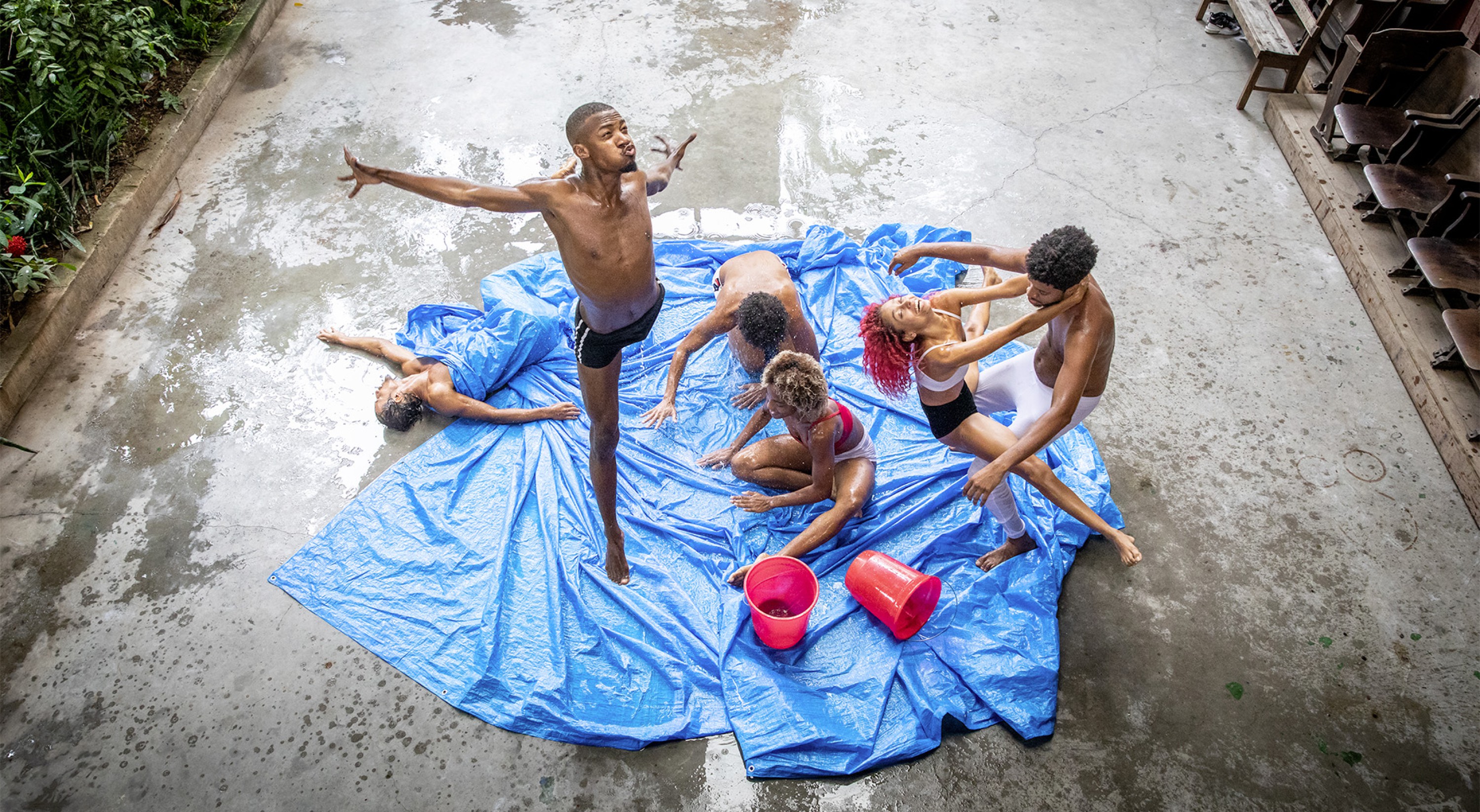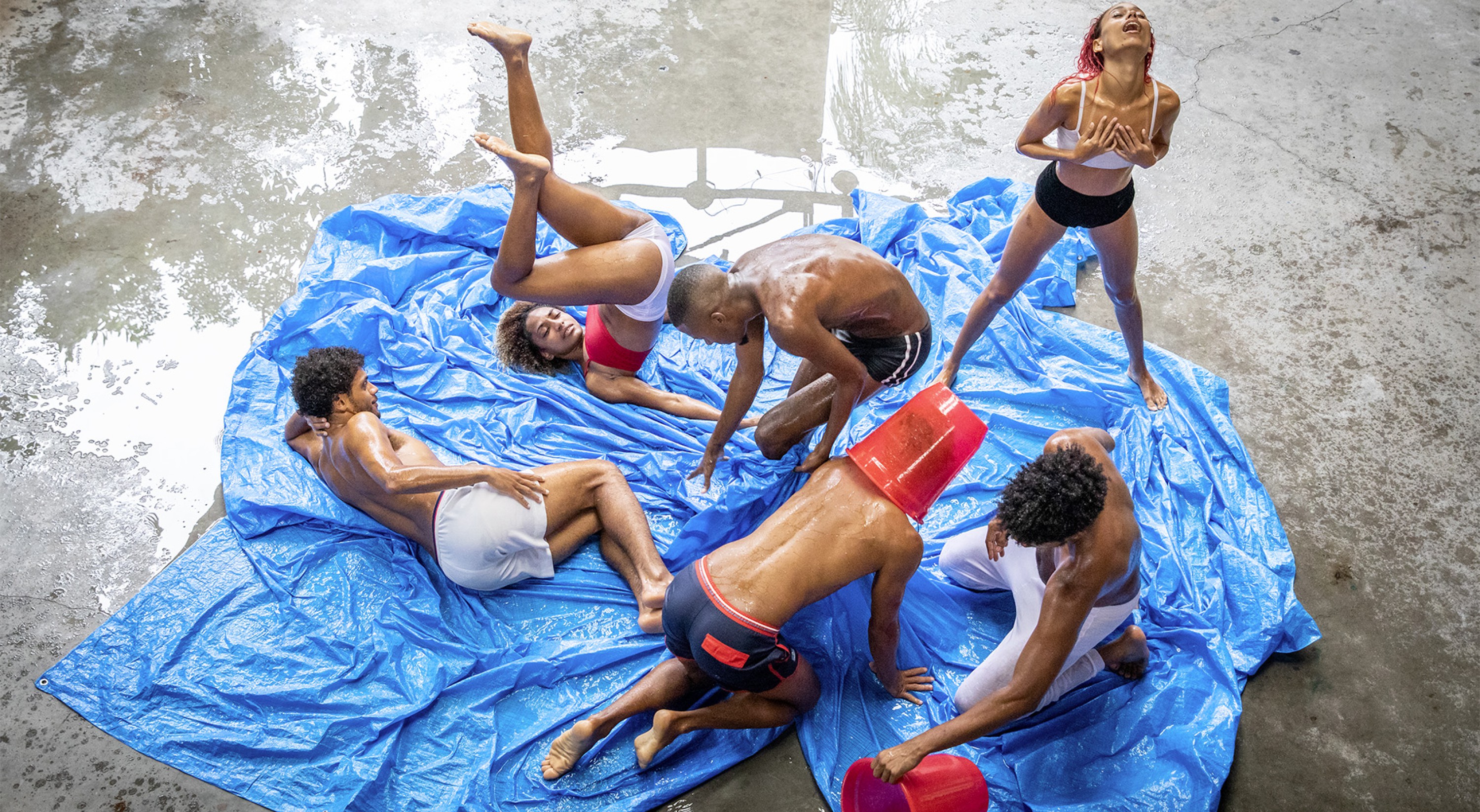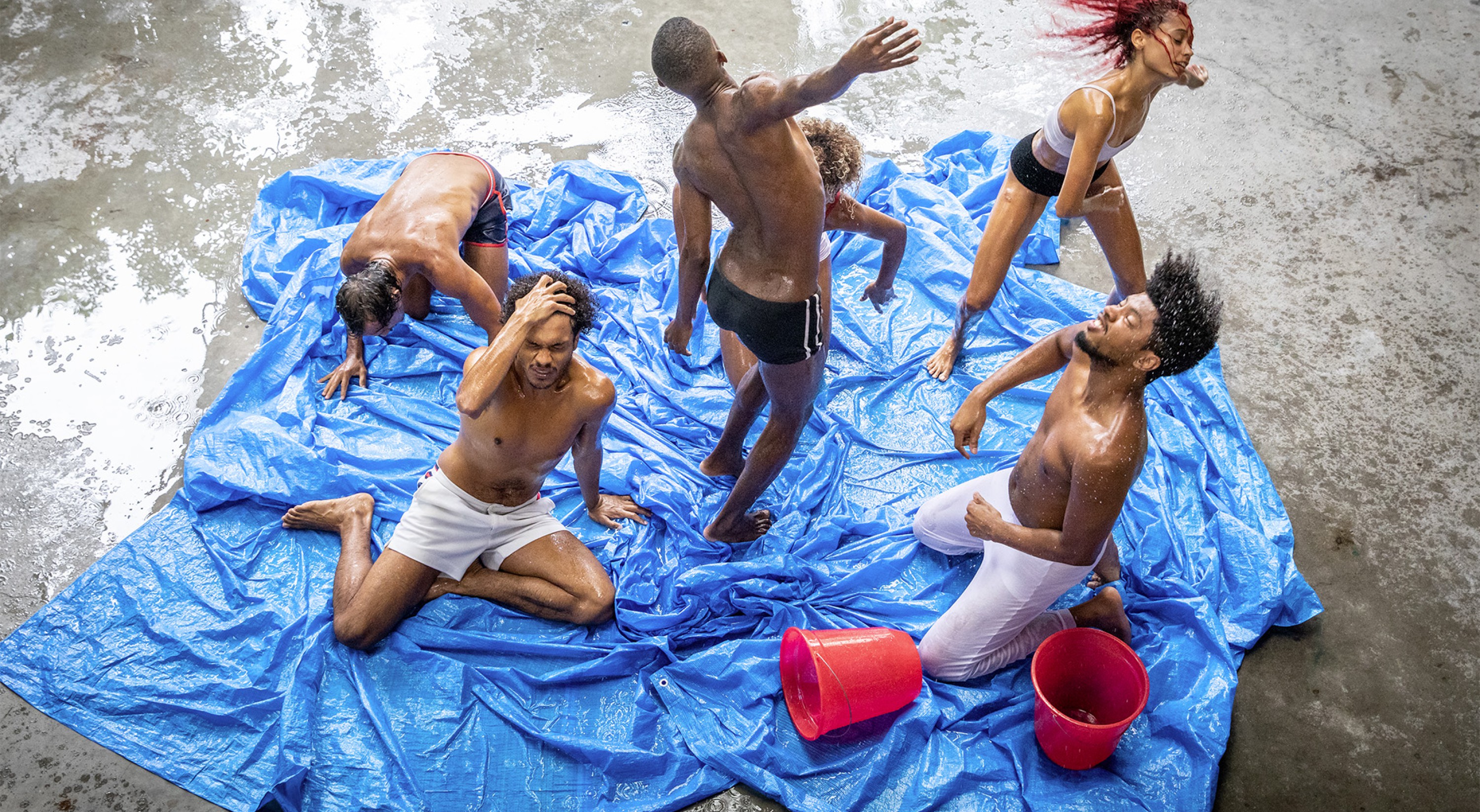Alice Ripoll
Lavagem
novembernov 22
novembernov 28 – 29
Choreography, Alice Ripoll
Original idea, Alan Ferreira
With Alan Ferreira, Hiltinho Fantástico, Katiany Correia, Rômulo Galvão, Tony Hewerton, Tamires Costa
Creation, Alan Ferreira, Hiltinho Fantástico, Katiany Correia, Rômulo Galvão, Tony Hewerton, Tuany Nascimento
Scenography, Raquel Theo
Costumes, Paula Ströher
Accessories and visagism, Cleber de Oliveira
Lighting, Tomás Ribas
Production, Natasha Corbelino – Corbelino Cultural
Production assistant, Milena Monteiro
Technical and production assistant, Thais Peixoto
Artistic assistant, Laura Samy
Diffusion, Art Happens
Photos, Renato Mangolin
Lighting desk, Nadja Naira
Festival d’Automne à Paris is the coproducer of this show spectacle and is the executive producer of its tour in France.
A coprodution between Kunstenfestivaldesarts (Bruxelles) ; PACT Zollverein (Essen) ; Kaserne Basel ; Wiener Festwochen ; Julidans ; Festival de la Cité Lausanne ; Passages Transfestival – Metz ; Romaeuropa Festival ; Teatro di Roma – Teatro Nazionale ; Festival d’Automne à Paris
With thanks to Alexandre Belfort, Sulamita Costa, Juliana França, André Oliveira, Walace Ferreira, Juliete Schultz, Mauricio Lima, Pedro Bento, Thamires Candida, Dilo Paulo, Diewry Patrick, Lenna Santos de Siqueira, Camila Rocha, Centro Coreográfico da Cidade do Rio de Janeiro, Arnoldo Pereira de Souza, Anita Tandeta, Camila Moura, Renato Linhares, Cecilia Ripoll, Andrea Capella, Casa de Mystérios e Novidades
With the help of Rafael Machado Fisioterapia
With support from Dance Reflections by Van Cleef & Arpels
Six performers dance with water, buckets and soap bubbles. What are they washing and who is in charge? Alice Ripoll takes ordinary things and uses them as the material for a choreography which questions the very meaning of the act of cleaning, taking it to a new poetic and political level.
“Different types of floors are possible, as long as they can dampened. It must be possible to crawl and roll on them.” Lavagem turns the stage into a playing space via the habitual gestures associated with cleaning – involving hands, bodies and the different surfaces. By dancing, the six performers, equipped with water, buckets and soap, explore the whole polysemy of these gestures and actions. In Brazil, the term ‘lavagem’ also refers just as much to the housework, often invisible to the eye, carried out by the women who look after the domestic space, as it does to money laundering. It evokes both brainwashing and purification rituals in equal measure, similar to those practiced during carnival time. Turned into choreographic material, these gestures recount a history of Brazilian society. Through the research on the different movements, types of matter and images, Lavagem is both invitation to both political reflection and poetic experience.


